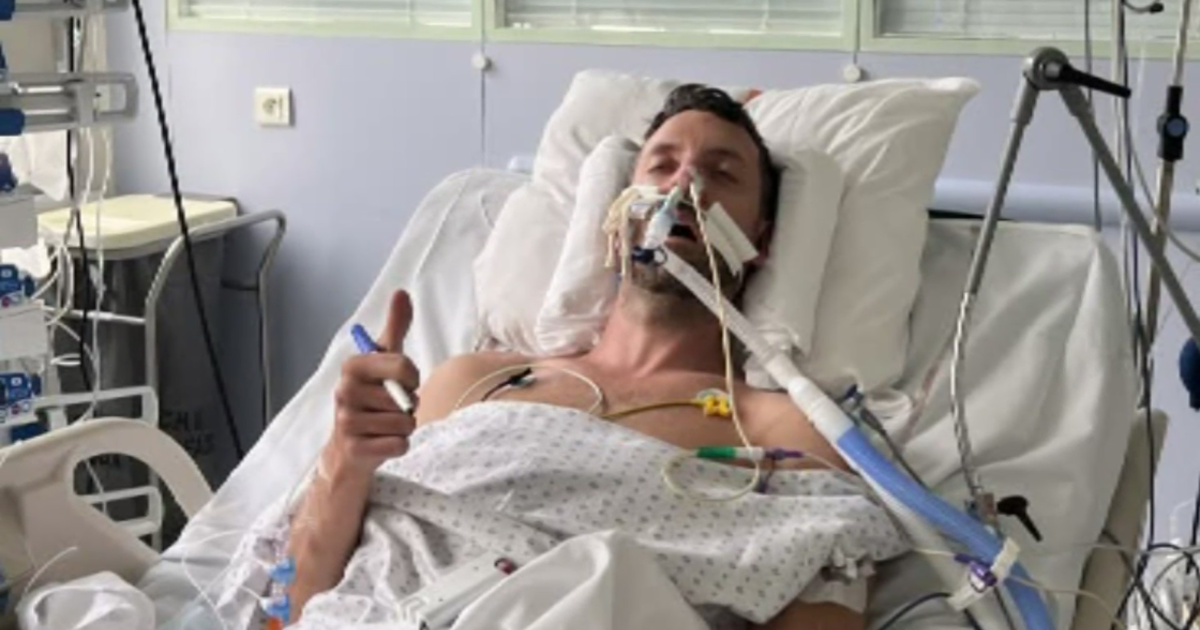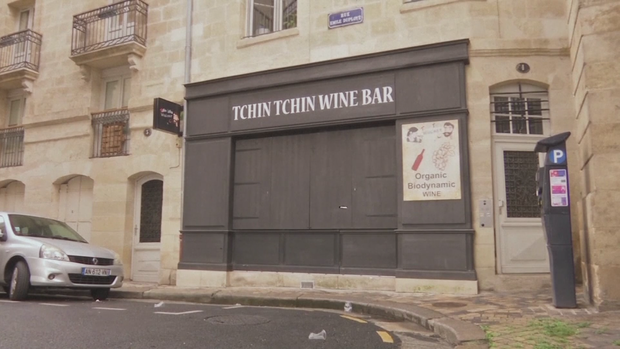The parents of Matt Jackson are waiting and worrying about their 41-year-old son who remains in an intensive care unit in a French hospital after being diagnosed with botulism poisoning. The toxin is produced by different forms of the botulinum bacteria and can grow in low oxygen environments like home canned or jarred goods.
CBS
“It’s like riding a roller coaster,” said his father Tom Jackson.
“But today was a bad day,” said Lynne Jackson.
Matt has now developed pneumonia, which French doctors are attempting to treat with three antibiotics.
Matt and his girlfriend of 19 years, Kristy Benner, both University of Colorado graduates working in a lighting design industry in California, each got ill after eating at a wine bar in Bordeaux, France. They are among as many as 25 people who are believed to have eaten sardines preserved and prepared by the restaurant. Matt and Kristy were on a vacation that began at the start of September. About five days into it, they sought out a destination wine bar before dinner.
“Tchin Tchin had been kind of on the top of our list to go visit. And it came highly regarded from multiple sources that we know and trust,” explained Benner.
CBS
The restaurant’s operator opened the sardines and some smelled bad, so threw them out. Others, though, were served to patrons over a six day period, according to an investigation by French authorities. One woman, a 31 year old, has died. The restaurant’s operator may now face charges of involuntary manslaughter as a French prosecutor is investigating.
For some it took days before symptoms came on. Matt, however, began to experience the symptoms more quickly.
“And then he just became very disoriented and very … it’s hard for him to speak. His mouth was super dry. I thought he was having a stroke,” said Benner.
She had to summon an ambulance to take him to a hospital. Doctors were initially baffled. Botulism is not common. In Colorado there are a handful or so of reported illnesses a year. Clostridium botulinum are rod-shaped bacteria which are present in soil and marine sediments around the world. They are anaerobic, meaning they live and grow in low oxygen. When survival conditions are poor the bacteria form protective spores, which have a hard protective coating. In such a state they can survive essentially dormant for years. The neurotoxin is produced during the growth phase of the bacteria and is among the most toxic substances known, potent in microscopic amounts.
“Many cases of foodborne botulism have happened after people ate home-canned, preserved or fermented foods that were contaminated with toxin. The foods might have become contaminated if they were not canned (processed) correctly,” states the Centers for Disease Control and Prevention.
Initially there were thoughts Matt might have Guillain Barre Syndrome. But as time passed and others began showing illness, including Benner, and doctors focused on botulism.
“I started feeling pretty unwell, like my extremities. And I just felt so tired, like I actually thought I might have COVID. It’s just that the swallowing thing was kind of weird. So I didn’t have COVID,” said Benner.
In France the anti-toxin is kept with the French military and had to be brought to the hospital. In the U.S. physicians go to the CDC to obtain the anti-toxin according to Rocky Mountain Poison and Drug Safety.
CBS
As botulism’s effect spread through Matt’s body he became immobile.
“His whole face is like a frozen face. And it went down into his shoulders and his arms and his legs,” said his mother.
He has since regained some movement, but only in limited amounts. The pneumonia is a setback
“All I want to do is just touch him and hug him and hold him,” said Lynne Jackson.
Matt’s brother and sister, both Coloradans as well, rushed to France to be with him and Kristy. Friends have stepped forward to help and raise money with a social media campaign. The family is not alone in the crisis, but there’s no indication of how or when Matt may be able to the return to the United States. While Kristy said she felt there was a lag time in the testing, Matt’s parents say his brother tells them the care has been very good.
“In a lot of ways it’s been an incredible learning experience for us showing how many friends and loved ones we actually have out there,” said Tom Jackson.
















